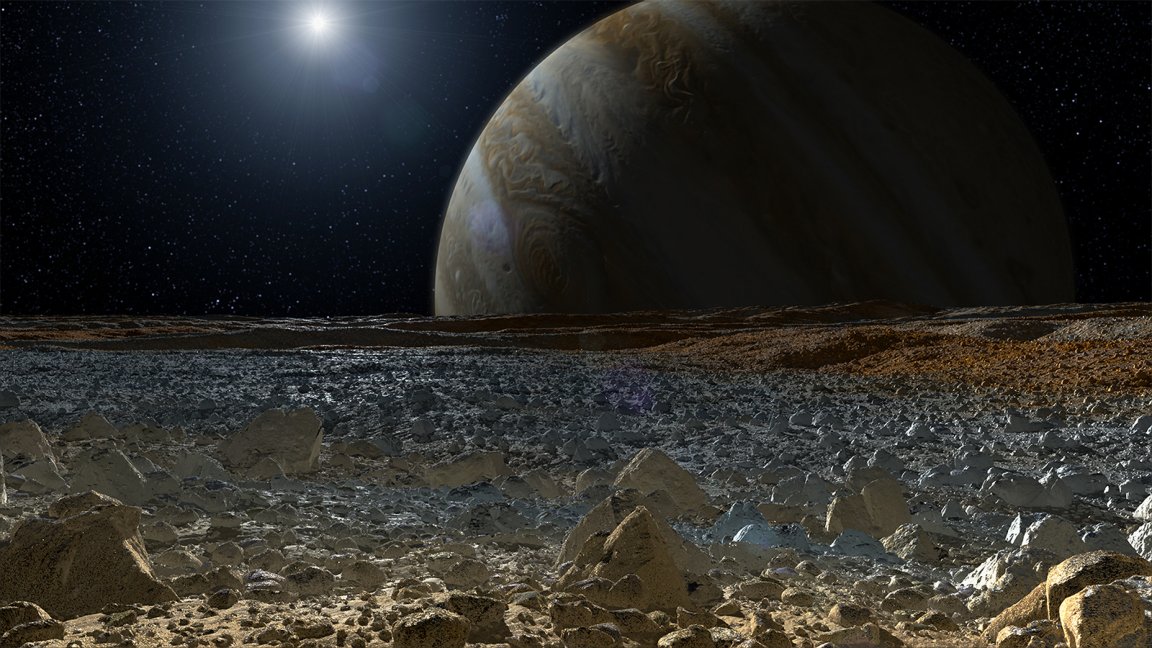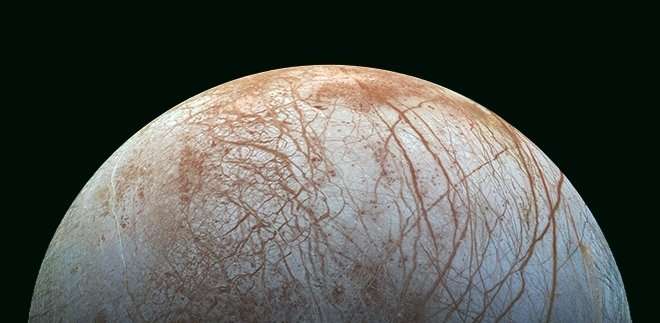
Evaluating Europa
Jupiter’s moon Europa is a hotbed of astrobiological interest. Below its icy crust is a deep ocean of liquid water, kept warm by energy from Jupiter’s gravitational interactions with the moon. While NASA and the European Space Agency (ESA) are planning for a 2025 mission to evaluate the potential for life on Europa up close, Brazilian researchers linked to the University of São Paulo (USP) have developed a model that uses similar environments on Earth to evaluate how habitable the moon may be for microbial life.

The study, published in the journal Scientific Reports, looked at the Mponeng gold mine near Johannesburg, South Africa. This very deep mine is leaking water full of radioactive uranium. The uranium’s presence breaks down water molecules into highly reactive free radicals, which then dissolves the surrounding rocks and releases sulfate. The researchers found that the bacteria could use that sulfate to create energy.
“This is the first time an ecosystem has been found to survive directly on the basis of nuclear energy,” said Douglas Galante, the study coordinator, in a press release.
By this method, the bacteria are able to survive without sunlight. Galante’s team says that the Mponeng mine is an analog for what the bottom of Europa’s ocean may look like.
Locating Life
Not only does Europa likely have about twice as much water as Earth; many think that this ocean is more Earth-like than originally expected. Galante explained in the press release that, because Europa’s ocean bed is similar to that of an early Earth, “studying Europa today is to some extent like looking back at our own planet in the past.”
Understanding the conditions in which organisms can evolve and survive will help to support the 2025 mission to Europa. This expedition, dubbed the Joint Europa Mission (JEM), will hopefully use this advancing knowledge to fulfill its mission of locating biosignatures of life on Europa.
While the JEM is years away, researchers can use this information begin to predict what life may be found. From this study, it seems as though microscopic organisms, if found, would likely be extremophiles. As this parallel between early Earth and Europa becomes clearer, this work will also serve to expand our understanding of how life can originate in the universe, and what is truly possible.